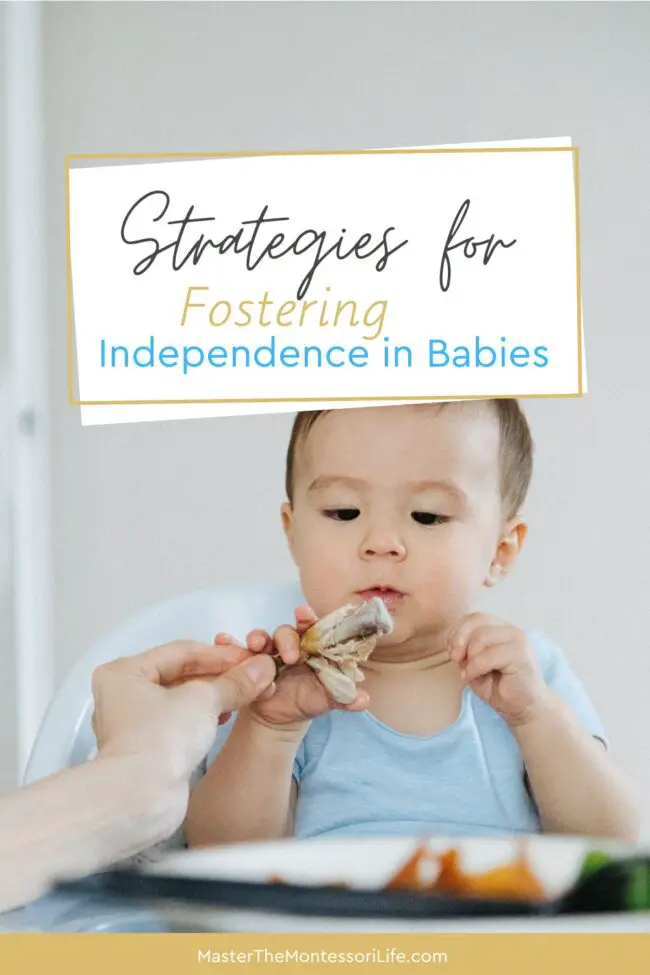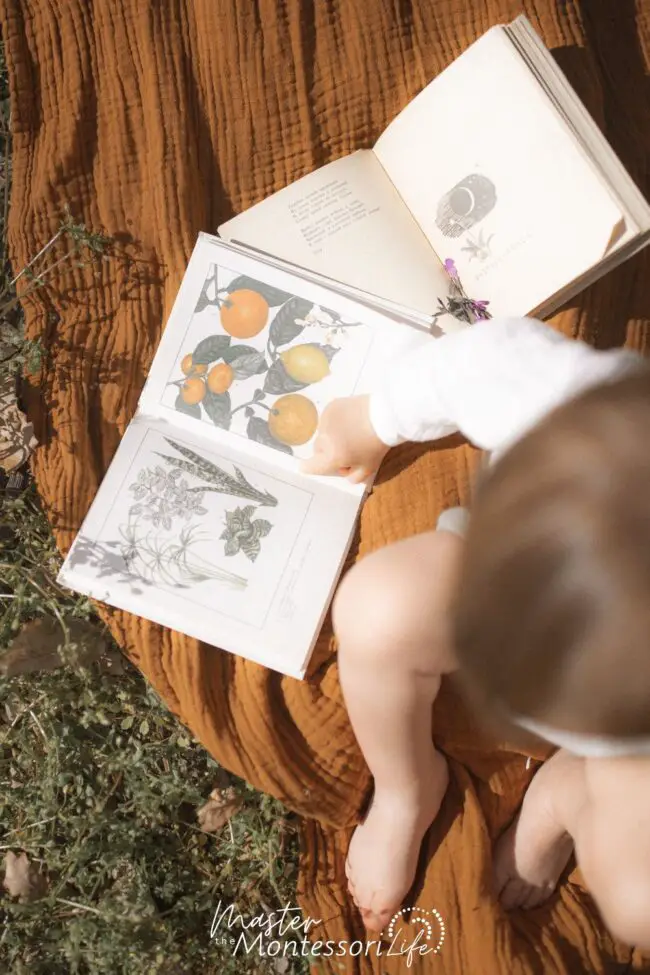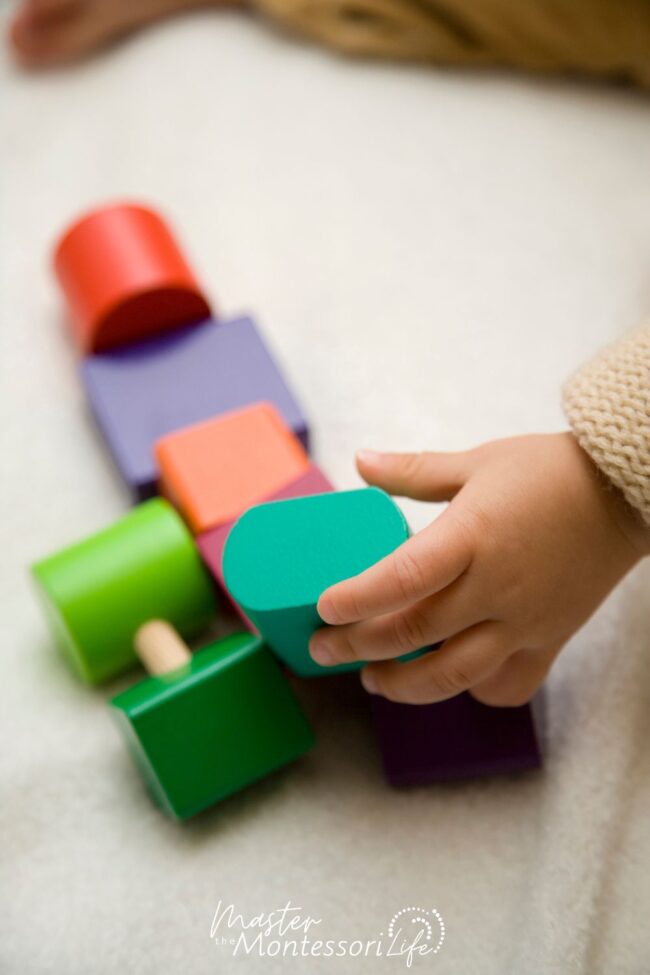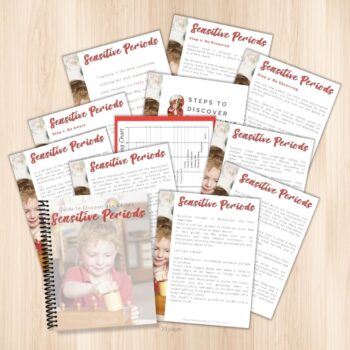Let’s discuss several key strategies that will help you Forster independence in babies as you introduce them to the Montessori philosophy. Montessori education extends its principles from birth, offering techniques to nurture independent growth in babies. The prepared environment is pivotal, with spaces designed to be safe, accessible, and uncluttered.
Low shelves, reachable toys, and floor beds promote exploration and self-directed engagement. Simplifying the environment with a few developmentally appropriate toys, rotated regularly, aids focus and decision-making skills.

Following the baby’s lead is crucial; observing their interests and allowing self-directed activity fosters autonomy and cognitive development. Providing sensory toys like textured fabrics or wooden rings enhances hands-on learning and fine motor skills.
In daily routines, involving babies in caregiving activities, such as diaper changes, builds responsibility and control. Encouraging self-feeding with easy-to-grasp foods and child-sized utensils supports independent eating. These daily practices integrate seamlessly with Montessori philosophies.

Respect and trust are foundational in this approach. Parents and caregivers should trust in the baby’s capability to learn and solve problems independently, offering support only when necessary. Communication should be respectful and clear, even if the baby cannot fully understand, to build a sense of trust and value.
By thoughtfully incorporating these strategies, parents and educators can help babies develop confidence, problem-solving skills, and a positive self-image. The Montessori method ensures these foundational skills are carried through their educational journey, fostering a lifetime of self-reliance and curiosity in learning.

Give your baby the gift of independence and watch them flourish. So, it is essential to continue implementing these strategies as your child grows and develops. As they become more independent, allow them even more freedom to make choices and decisions for themselves. This will help foster their self-esteem, problem-solving skills, and overall development.
Remember that fostering independence in babies is a gradual process and requires patience, consistency, and a supportive environment. By embracing Montessori principles from birth and continuing to implement them as your child grows, you are setting the stage for a lifetime of self-reliance and curiosity in learning. Watch with joy as your little one becomes an independent, confident individual!
Conclusion
So, let’s continue to nurture their independence by providing them with the tools, opportunities, and support they need to thrive. Together, we can help create a brighter future for our children. So, let’s embrace Montessori principles and watch as our babies blossom into capable, independent learners! Keep exploring and learning with your child, knowing that you are laying the foundation for a lifetime of success. Happy parenting!
You might also enjoy these relevant topics:
Montessori Wooden Baby Toy Set – 6 Pieces of Rattles, Push Car and Newborn Toys for PgUp Baby Play Gym Wooden Baby Gym with 7 Toys, Foldable Wooden Play Gym Frame Hanging
PgUp Baby Play Gym Wooden Baby Gym with 7 Toys, Foldable Wooden Play Gym Frame Hanging hahaland High Contrast Baby Flashcards – Black and White Infant Baby Cards 0-6 Months Tummy Time
hahaland High Contrast Baby Flashcards – Black and White Infant Baby Cards 0-6 Months Tummy Time MORITECK Spinning Drum, Montessori Toys for Babies 6-12 Months, Infant Kids Developmental Wooden Toy for Boy
MORITECK Spinning Drum, Montessori Toys for Babies 6-12 Months, Infant Kids Developmental Wooden Toy for Boy Montessori Play Kit for 0-6 Month Baby Tummy Time Interactive Toys Baby Brain Development Toys Rattle
Montessori Play Kit for 0-6 Month Baby Tummy Time Interactive Toys Baby Brain Development Toys Rattle Montessori Babies
Montessori Babies
- Strategies for Fostering Independence in Babies
 Let’s discuss several key strategies that will help you Forster independence in babies as you introduce them to the Montessori philosophy.
Let’s discuss several key strategies that will help you Forster independence in babies as you introduce them to the Montessori philosophy. - The First Year of Life: Developmental Stages and Key Milestones
 When you are looking at raising your baby the Montessori way, the first thing you need to focus on is the baby’s developmental stages during the first year of life.
When you are looking at raising your baby the Montessori way, the first thing you need to focus on is the baby’s developmental stages during the first year of life. - A Thorough Guide to Montessori Sight Words
 One of the core components of the Montessori literacy program is the introduction of sight words. But what exactly are Montessori sight words, and why are they important?
One of the core components of the Montessori literacy program is the introduction of sight words. But what exactly are Montessori sight words, and why are they important?


















Leave a Reply